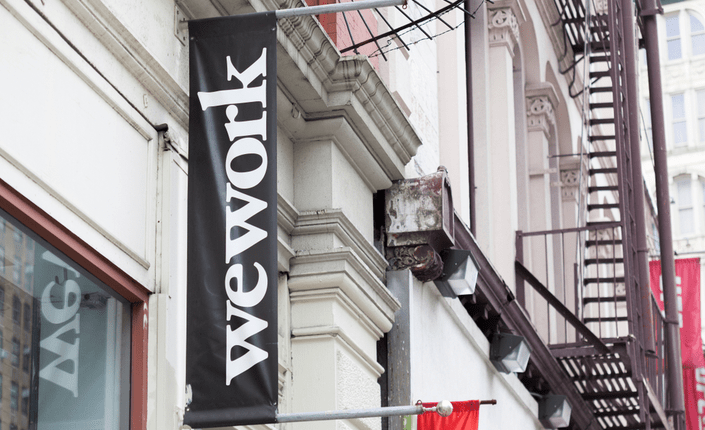
It's no secret that WeWork is a giant among men when it comes to flexible work spaces, with its hip facilities and pricing structure which makes it accessible for startups to boost their own businesses that would have be run out of someone's home.
However, despite their best efforts to position themselves as a booming PropTech start-up, grave questions have arisen regarding that status and their commercial viability. Casting further shade on the brand, figures recently released by Reuters on parent company, We Company, indicate that behind the shiny facade there are major fundamental issues at the core of their business.
Expanding at an incredible rate, WeWork started in NY in 2010, and now boasts sites in 528 locations throughout 111 cities worldwide with more than 527,000 members. But, despite this astounding uptake, We Company has been backed into a corner, postponing their scheduled IPO after having up to USD$37 billion wiped off its valuation since January this year.
Not only did they go from starting 2019 as a USD$47 billion entity to now being valued at between USD$10-12 billion, they also lost USD$1.9 billion on USD$1.8 billion in revenue in 2018. This highlights that its revenue growth is easily being outpaced by significant losses – a serious concern for its private investors as well as its members.
This is an especially large blow for its biggest investor, Japanese firm Softbank – and it couldn’t come at a worse time, as Softbank attempts to raise USD$108 billion to back its second Vision Fund.
So how have things gone so wrong for WeWork and why are the losses so great?
Read more here
Join us November 12-15 for the Property Portal Watch Conference Madrid 2019.